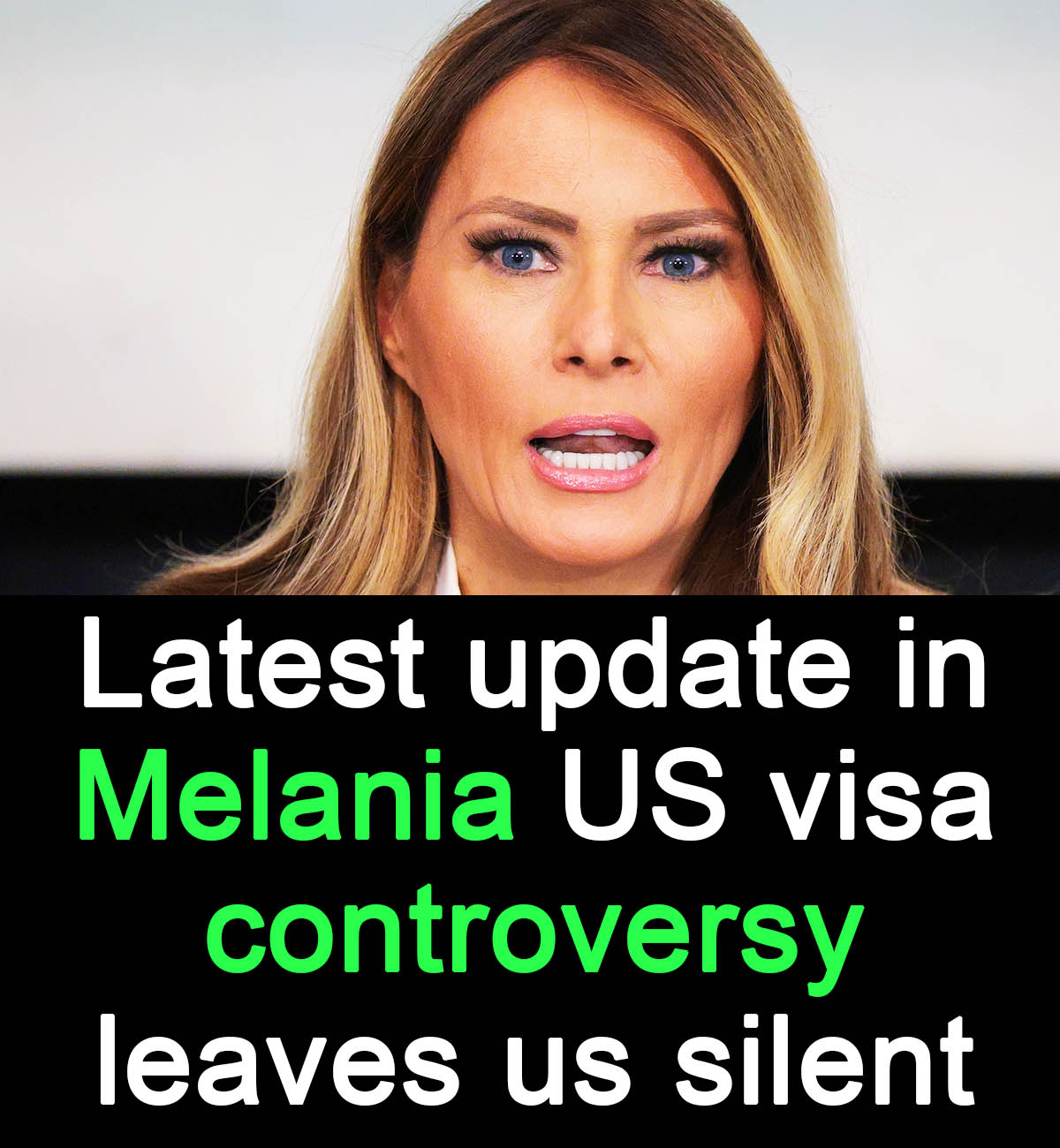In the early 2000s, Melania Trump, then a promising model, secured a U.S. visa that has since become a point of contention— the EB-1 visa, also known as the “Einstein visa.” While this visa is typically reserved for individuals with “extraordinary abilities,” it has raised questions about Melania’s qualifications for such an honor. Recently, Texas Rep. Jasmine Crockett questioned how Melania might have received this prestigious visa, given her lack of the usual accolades associated with the status. Let’s dive deeper into the controversy surrounding Melania’s visa and the facts surrounding it.
The EB-1 Visa: Who Qualifies?
The EB-1 visa, formally known as the “Einstein visa,” is a U.S. immigration visa meant for individuals who demonstrate extraordinary ability in their field—whether it be in the sciences, arts, business, education, or athletics. According to the U.S. Citizenship and Immigration Services (USCIS), eligible applicants must have significant accomplishments, such as receiving a Pulitzer Prize, an Oscar, or an Olympic medal. It is designed to attract exceptional individuals who have made noteworthy contributions in their respective industries.
Melania Trump’s Visa: A Cause for Controversy
In 2001, Melania Trump received the EB-1 visa while working as a model. However, her visa has been met with skepticism. Rep. Jasmine Crockett, during a House Judiciary Committee hearing, raised questions about the validity of Melania’s visa. Crockett pointed out that the “Einstein visa” is typically given to individuals with extraordinary achievements, such as Nobel laureates, Pulitzer winners, or Olympic champions. She argued that Melania, a model, did not have these high-level accolades, which made the granting of the visa seem unusual.
Crockett emphasized that Melania’s modeling career, while successful, did not align with the typical candidates for the EB-1 visa, such as world-renowned figures in arts or science. “Let me tell you how you receive an Einstein visa,” Crockett said. “You’re supposed to have some sort of significant achievement… last time I checked, the first lady had none of those accolades under her belt.”
Fact-Checking the Visa Controversy
To clarify the situation, fact-checking website Snopes delved into the matter, providing more insight into how a model could qualify for the EB-1 visa. Although Snopes could not confirm whether Melania Trump specifically received the EB-1 visa, they highlighted that other models in the fashion industry have been granted this or the O-1 visa, which also requires individuals to prove extraordinary abilities.
In fact, the EB-1 visa has been used by individuals in the modeling and entertainment industries who have demonstrated exceptional skills. For example, comedian John Oliver entered the U.S. on an O-1 visa, and former Playboy model Shera Bechard obtained a temporary “genius” visa. These cases show that it’s not impossible for a working model, like Melania, to qualify for a visa based on her extraordinary abilities.
Melania’s Path to the U.S.
Melania Trump arrived in the U.S. in 1996 with a tourist visa before transitioning to a series of work visas. She eventually obtained the EB-1 visa in 2001. Melania was introduced to Donald Trump by her modeling agent, Paolo Zampolli, who also helped her with the visa process. Her entry into the U.S. was facilitated by the connections Zampolli had in the fashion industry, and Melania’s career took off from there.
Melania’s visa application was processed through the EB-1 category for individuals with extraordinary abilities. The visa process for models like her can be complex, but it is not entirely unusual for top-tier professionals in the field to qualify for such visas. In her case, the fact that she was a sought-after model in high-profile campaigns and had a significant career within the industry might have made her eligible for this specific visa category.
What Does This Mean for Melania Trump?
While the controversy surrounding Melania Trump’s EB-1 visa persists, the fact remains that the visa process for extraordinary individuals in fields like modeling is well-established. The confusion stems from the public perception of the visa as one that is granted only to Nobel laureates or Olympic athletes. However, the reality is that individuals in fields like fashion, entertainment, and business can also qualify, provided they demonstrate exceptional ability.
Melania’s visa, although controversial in some eyes, is not entirely out of the ordinary for someone of her caliber in the modeling industry. As Snopes pointed out, it’s entirely plausible that Melania’s qualifications for the EB-1 visa were based on her significant success in modeling, as others in similar industries have obtained the same visa.
Conclusion
The debate over Melania Trump’s EB-1 visa highlights broader questions about the visa process and who qualifies for such prestigious immigration statuses. While Rep. Jasmine Crockett and others may continue to question Melania’s eligibility for the visa, the fact remains that many in the fashion and entertainment industries have successfully obtained similar visas.
Ultimately, it seems that Melania’s visa might not be as controversial as some believe. In an industry where models can qualify for the EB-1 visa based on extraordinary accomplishments, her success as a high-profile model might have been enough to meet the criteria.
For more stories on immigration and visa topics, check out:



